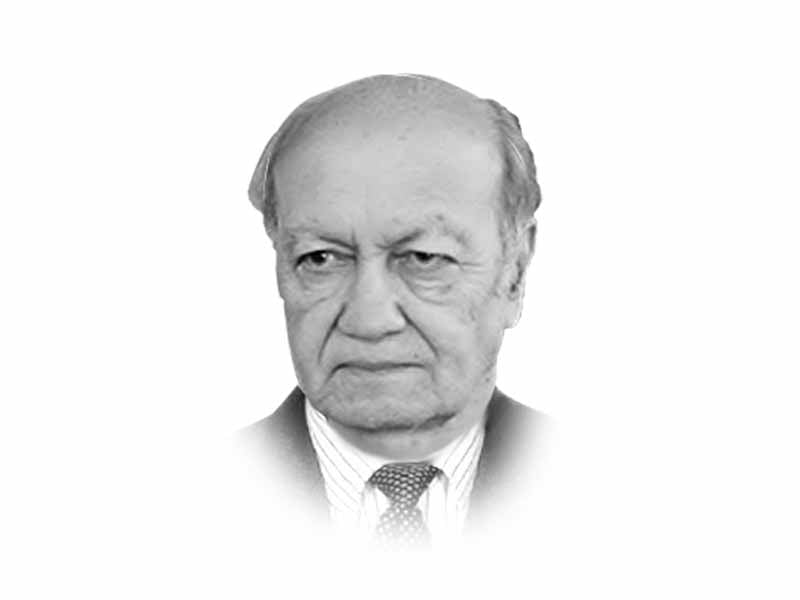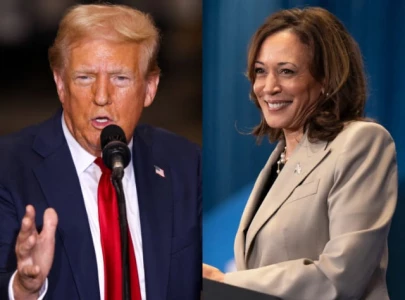
In recent weeks the country has been adrift while the government remains heavily preoccupied with matters of law and order and extraneous issues, many of which are a legacy of the past. Their immediate challenge was figuring out how to deal with the incorrigible Tehreek-e-Labbaik Pakistan’s (TLP) highly inflammatory and intransigent politics that had paralysed most of the major cities and caused incalculable damage to the economy. This was not the first time that the religious political party has demonstrated its strength, causing enormous inconvenience to the people — several policemen lost their lives and hundreds more were injured — and placing demands that could only be met at the peril of the nation. Their frequent protests and disproportionate influence and the substance of the peace agreements should be a cause for serious concern. The party leadership would be well advised to focus more on elections and a peaceful pursuit of their agenda rather than by holding the country hostage. The protests have already cost the national economy billions of rupees with the adverse impact mostly borne by those who are already facing severe economic hardships.
The inordinate delay in the posting of the new DG ISI was another avoidable event. It was a reflection of the weaknesses in the functioning of the government and our warped democracy. It once again brought to surface the contradictions in the duality of power in our democratic structure that have undermined its inherent strength with no desire on the part of political and security establishment towards correction. The demonstration of the opposition parties with all its nuisance and disruptive value only add to the government’s woes. Surely, the opposition has the right to demonstrate, exhibit its support for the inflation-stricken masses but without any specifics of what they have to offer except to demonise, the government does not inspire confidence. The PTI government’s heavy reliance on promulgating ordinances instead of setting good traditions by relying on following established democratic practices needs to change.
The increasing incidents of terrorist attacks in the erstwhile tribal belt, where several of our young officers and soldiers have been martyred, show no signs of abetting. It appears that it is not receiving due attention of the government nor of the parliament. Surely, the Prime Minister and the Defence Minister must be concerned but seldom is there any mention of it in public or expression of their grief or news about the visit to the family of the deceased. Despite Pakistan’s serious concerns it is not clear whether the Taliban government is taking any effective measures to prevent TTP, IS-K and other militant groups from using bases in Afghanistan and operating against it. Pakistan expects that the Taliban will act firmly against these lawless elements. Meanwhile, Pakistan along with China and other Afghan neighbours is working for the stability of Afghanistan as the country faces a serious financial crunch and a vast majority of Afghans are on the verge of starvation. Pakistan is encouraging the Taliban leadership to become a responsible member of the world community and the international system. For this it will have to make several amends: make the government more inclusive, allow girls to attend school and colleges, and respect human rights. These measures would make the West more responsive to their needs. The fallout of Taliban’s obstinacy to change could also affect Pakistan.
Then there are other weaknesses that we need to overcome. Pakistan is lagging behind in all the development indicators as compared to our South Asian neighbours — India, Sri Lanka and Bangladesh — and the gap is increasing. What is worse there is little realisation of this serious failing among the ruling elite. Improving the quality and spread of universal education has been a low priority for successive governments and as statistics indicate 25% of the adult population is illiterate, a fact that should set off alarm bells. According to independent academics, the recent education reforms are more likely to bring down the existing standard to the lowest denominator instead of raising it to the level compatible with the demands of time. The Punjab government would be well advised to take the criticism seriously rather than try to project it is a class-conscious prejudice. Higher education is no better and the self-delusion that we are turning out a large number of PhD students should be assessed in accordance with the global standards. All these indicate that there are no easy ways for correcting the course of a nation without visionary and dedicated leadership.
Despite India’s hostilities the Prime minister and the Foreign Minister have made several gestures towards peace without compromising on Kashmir. This shows the genuine desire of Pakistan’s leadership to promote peace between the two countries, which has the potential of having a transformational impact.
The government has done some positive interventions which have long-term impacts on the economy, and they need to be highlighted. One such initiatives is the Pakistan Single Window which once implemented will integrate over seventy government bodies like FBR, Customs, Nadra, SBP and other regulatory bodies. It would not only facilitate international trade but also help accelerate the digital transformation of the public sector agencies connected to international trade. This is a commendable undertaking and a must for smooth integration into the global economy. Another impactful and long-term initiative is the Billion Tree Tsunami project which considers the value of forest and environment as a challenge to tackle global warming.
Ehsaas is yet another excellent programme launched by the PTI government. It has emerged as the largest social protection programme in the history of the country and was launched when the Covid-19 pandemic was at its peak last year, benefiting almost half of the country’s population. This programme continues to be the focus of this government, and for the future it is innovating and coming up with new ideas of benefiting the poor while increasing its outreach.
If the government would seriously focus on governance, address the weaknesses in the economy, pursue a more conciliatory approach toward opposition parties, and reinforce its achievements, Pakistan’s destiny would be very different.
Published in The Express Tribune, November 3rd, 2021.
Like Opinion & Editorial on Facebook, follow @ETOpEd on Twitter to receive all updates on all our daily pieces.






1730793476-0/bella-(1)1730793476-0-165x106.webp)


1729685382-0/Untitled-design-(57)1729685382-0-270x192.webp)


1730706072-0/Copy-of-Untitled-(2)1730706072-0-270x192.webp)
COMMENTS (1)
Comments are moderated and generally will be posted if they are on-topic and not abusive.
For more information, please see our Comments FAQ